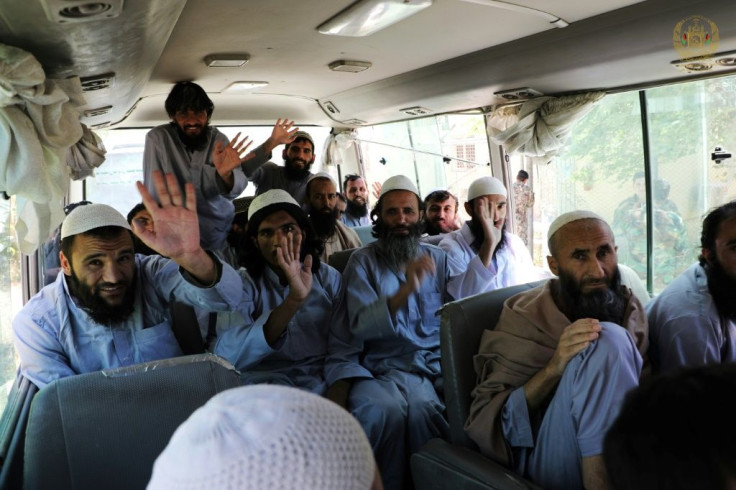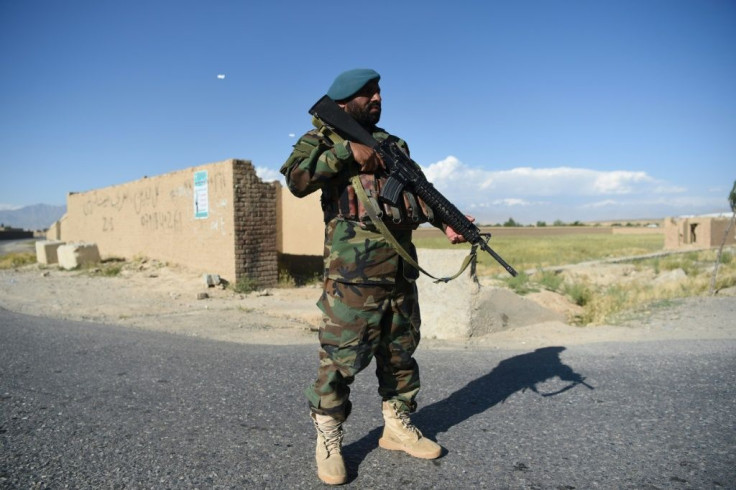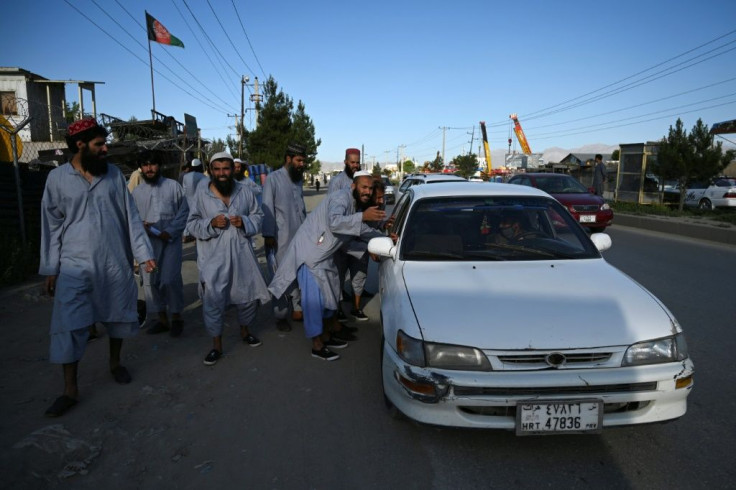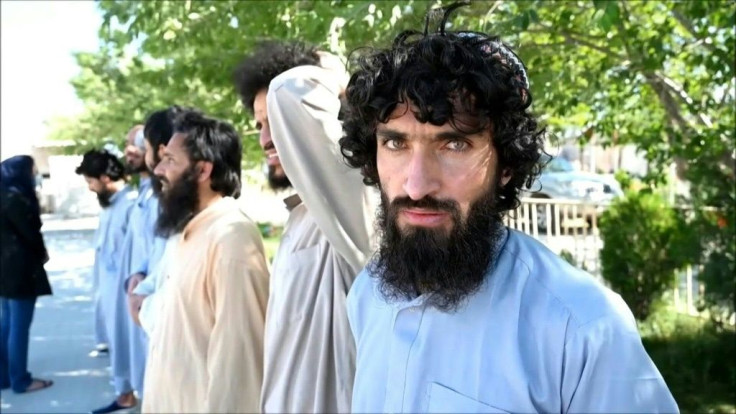Hundreds More Taliban Prisoners Freed On Last Day Of Afghan Truce
Afghan authorities freed hundreds more Taliban prisoners on Tuesday, as calls grew for the militants to extend a ceasefire on its third and final day.
The historic pause in fighting -- only the second in nearly 19 years of war -- has mostly held across Afghanistan, providing a rare respite from the conflict's grinding violence.
Authorities said they had released about 900 Taliban prisoners across the country on Tuesday, approximately 600 of them from the notorious Bagram jail near Kabul.

The release is part of a pledge by the Afghan government to free up to 2,000 insurgent prisoners in response to the Taliban's three-day ceasefire offer, which began Sunday to mark the Muslim holiday of Eid al-Fitr.
Abdul Wasi, 27, from Kandahar province, much of which is under Taliban control, said he was a "holy warrior" when he was detained eight years ago.
"I was told ... to do jihad until all foreign troops are driven out of our country," Wasi, sporting a long beard and wearing a traditional baggy shirt-and-trouser shalwar kameez, told AFP moments after he was freed.
He said he was happy about the US-Taliban deal paving the way for all foreign forces to leave Afghanistan by May next year, and that he wanted a permanent ceasefire.

"If the foreign troops exit, we won't fight," he said as he boarded a Kabul-bound bus along with other freed Taliban members.

The prisoners had signed written pledges not to return to the battlefield, but freed inmate Qari Mohammadullah vowed to continue fighting if foreign forces remain.
"We don't want foreigners to stay any longer in our country. They must leave immediately," Mohammadullah said.
"We will continue our jihad until every single foreign force leaves."
Each former prisoner was given the equivalent of about $65 in Afghan currency. The buses they had boarded at the prison dropped them in Kabul, where they bid goodbyes to each other and took taxis to their homes.

The release of 900 prisoners marked "good progress," Taliban spokesman Suhail Shaheen said on Twitter.
He added the group will free a "remarkable" number of Afghan security force personnel, but did not specify when.
Afghan authorities hoped the Taliban would extend the ceasefire so delayed peace talks with the insurgents could begin, National Security Council spokesman Javid Faisal said.

"If the Taliban are ready to extend the ceasefire, we are ready to continue the ceasefire too," Faisal told a news conference.
"We hope they release our prisoners so that intra-Afghan peace talks begin as soon as possible... The future depends on the Taliban's next move," he said.
The ceasefire has raised hopes of an extended truce that could pave the way for talks, which had originally been scheduled to start by March 10.
"Extend the ceasefire. Save lives," Shaharzad Akbar, head of the Afghanistan Independent Human Rights Commission, said on Twitter.
"End the violence so that we can all focus on making services available to the most vulnerable across the country, on expanding access to human rights, so that we have space to breathe."
A senior Taliban source earlier told AFP the group could extend the ceasefire by seven days if the government speeds up the release of prisoners.
But insurgent spokesman Zabihullah Mujahid said he had no information about an extension.
The European Union mission in Afghanistan called for a "permanent and comprehensive humanitarian ceasefire ... which can lay the ground for peace negotiations".
The US-Taliban deal stipulates the Afghan government would release up to 5,000 Taliban prisoners and the militants would free about 1,000 national security personnel.
Prior to this week's releases, Kabul had already freed about 1,000 Taliban inmates, while the insurgents released about 300 Afghan security force captives.
US Secretary of State Mike Pompeo, while welcoming the latest developments, has insisted that freed Taliban prisoners should not return to the battlefield.
President Ashraf Ghani has said his administration is ready to begin peace negotiations, seen as key to ending the war.
Before the ceasefire started, the Taliban claimed multiple deadly attacks against Afghan forces across the country.
But they denied carrying out a gruesome rampage in a maternity hospital in Kabul earlier this month when gunmen shot dead mothers, nurses and newborns.
The Afghan military now runs the facility.
© Copyright AFP 2024. All rights reserved.











